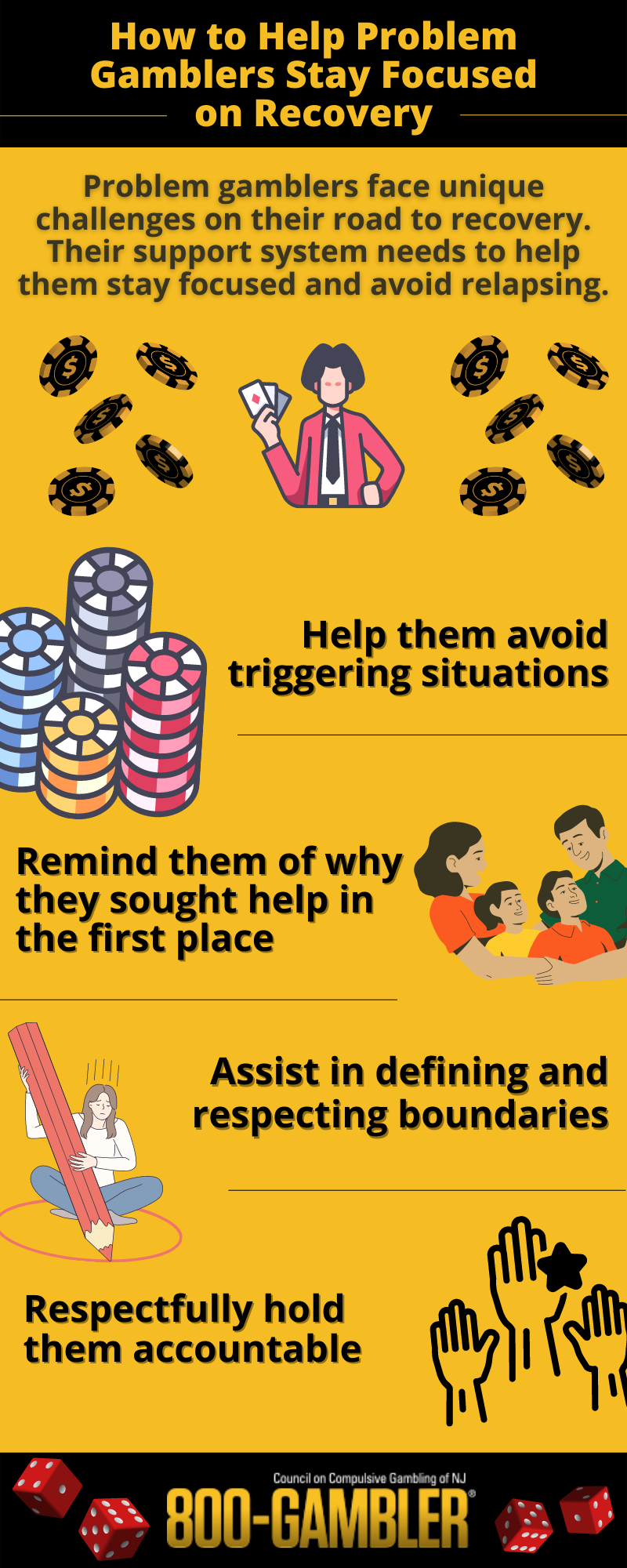Problem gamblers face a difficult road to their recovery. Making the decision to take the necessary steps to get help is an important step; it often means nothing without the help and support of their loved ones to help along their journey.
However, for people dealing with their loved one’s gambling problem for the first time, knowing what an effective support system looks like can prove challenging. You want to set them up for sustained success but may not know what to say, how to convey it, and what type of help they may need in a given moment for their problem gambling recovery.
You can build a strong support system for someone with a gambling problem — as long as you have some help and guidance.
Come From a Place of Love and Acceptance
Admitting that they have a problem represents the first monumental step in their recovery. However, depending on how bad their compulsive gambling became, the amount of money they lost, and its effect on their family life can be an intense source of shame. A proper support system shows that even if they had mistakes in their past — they are not defined by them. Their changes are valid and show a definitive desire to improve, and their support system can help.
Know How to Approach Them
Regardless of the topic, how you approach someone in a conversation directly impacts how receptive they are to what you’re saying. Choosing your words carefully, being mindful of your tone, and coming to the conversation with the right attitude will influence just how well the discussion goes. Approaching the problem gambler in your life from a place of compassion and understanding — with a little tough love — shows them that their support system is here to listen to them and help them through their issues.
Help Them Stay Focused on Their Goals


Family and friends remain an important part of a compulsive gambler’s recovery. One area they can help their loved ones stay the course involves helping stay focused on their “why.” The reason why they decided to stop compulsive gambling and seek the help they need.
During different stages of their recovery, certain triggers can present themselves, potentially leading your family member down a destructive path. A good support system can help identify when these incidents start to happen and help them remember why they sought to help in the first place. That reminder can prove the thing they need to pull themselves back from the brink of temptation.
Hold Them Accountable
A major component of compulsive gambling recovery centers around the additional treatment they receive. Services such as cognitive behavioral therapy, support groups, and GA meetings will help them face their demons and deal with difficult feelings associated with their recovery. However, sometimes they may think they have a handle on the different types of gambling recovery, and they no longer need to seek professional help.
In some cases, this may be the case; however, if you notice that they have started to drift back toward bad habits, holding them accountable can help keep them from a relapse. We discuss different tactics on how to support a loved one through their gambling recovery without enabling them to help give you a place to start.
800-GAMBLER Can Help You Create a Support System!
When someone seeks help for a compulsive gambling problem, having a strong support system in place goes a long way towards ensuring they can achieve their gambling-free goals. A crucial piece of the puzzle is knowing where to go to find the resources they need to succeed. Whether they need help telling their loved ones about their gambling problems or you need help finding them the right support groups, call 1-800-GAMBLER to access a wide range of helpful resources.
If you or a loved one needs help with a gambling problem, our free and confidential 24/7 helpline is waiting for you. Please don’t hesitate to contact us; we can help create a stable support system today!

